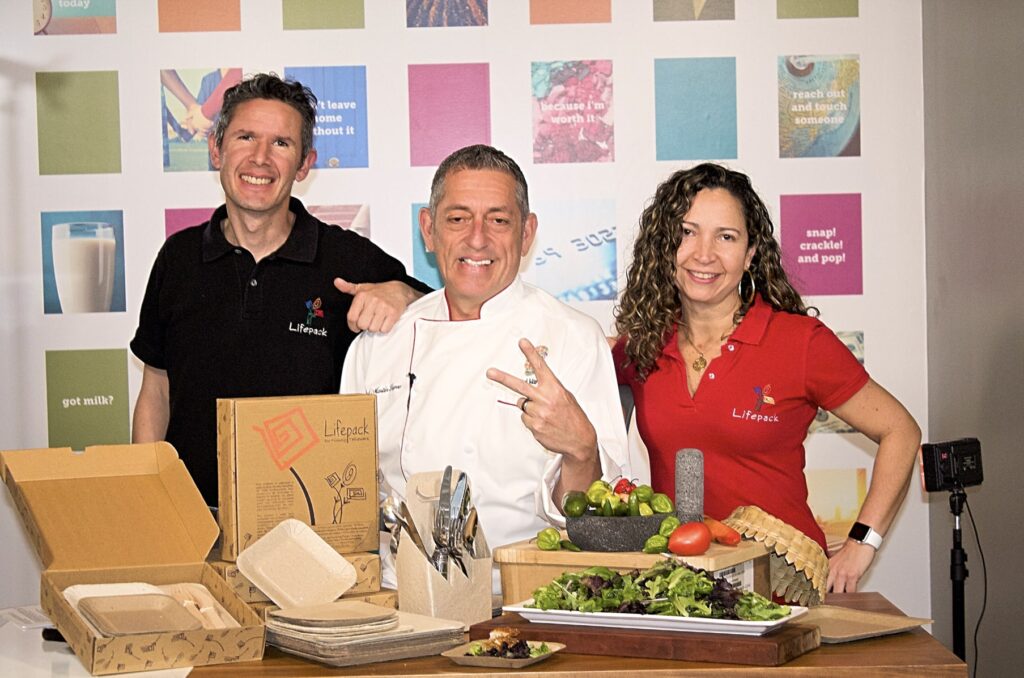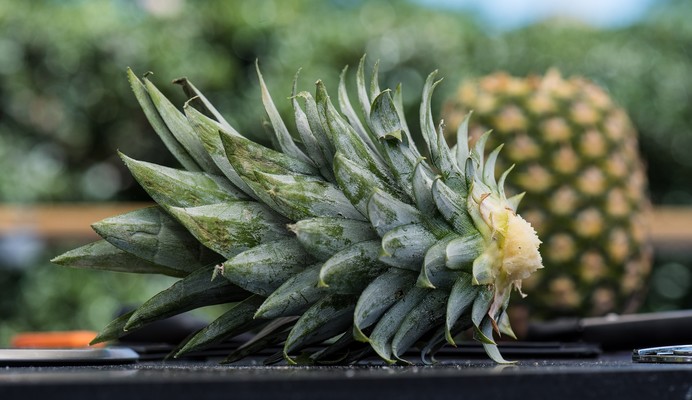We all love that tangy, citrusy flavour of pineapples, don’t we? A fruit with such a high number of minerals and antioxidants, enjoyed by all age groups.
But there’s a company that is making use of this amazing fruit by making plates from the tops of pineapples that are shredded, mixed with some recycled paper, and turned into sheets that are then left for drying under the sun. There’s a machine that does the job of pressing the sheets into forms.
But what’s more amazing about these disposable plates is, if end up in a place with water and soil, tiny seeds inside will blossom in a few days.
“We are not just making a biodegradable or a compostable plate. We wanted to go further and create a plate that generates life,” says Andres Benavides, co-founder of Lifepack.
On average, workers at Lifepack can turn out around 10,000 eco-friendly plates every single day.
“We are using agricultural residues that people were just throwing away, and we are transforming them. That’s where we make a difference.”, says another co-founder of the company, Claudia Barona.
Other than these plates, the company is also into the making of sandwich containers and coffee cup sleeves that contain seeds from edible plants like strawberries, amaranth, and cilantro.
The company caps its carbon footprint by working with local suppliers. “We don’t chop down trees to make our products, and that’s a key part of our business. For every ton of products that we make, we save about 16 trees”, says Andres.

It gets the pineapple waste from nearby processing plants, and the owner of the plants charges nothing for the pineapple crowns. They are happy to see someone turn this waste into something useful.
“We are trying to promote the creation of circular economies. And for our pineapple crowns, we don’t think they could be in better hands. Lifepack is doing an important job, and it’s something we support,” said Gloria Estela Ramirez, manager at a plant called Deli Agro Foods.
Husband and wife team Claudia Barona and Andres Benavides founded Lifepack 12 years ago in the city of Cali. The couple has won several small business awards and even appeared on the Columbian version of ‘Shark Tank. “Every time that we saw gatherings in homes when we saw parties and picnics in parks, we noticed people polluted a lot using traditional products made from plastic or Styrofoam”, said Claudia.
Columbia, like every other country, is trying to reduce plastic waste. Initiatives like this come in handy while dealing with the issue, showing us how there are so many innovative ways we can save and give back to the planet earth.
Tazeen Ansari

